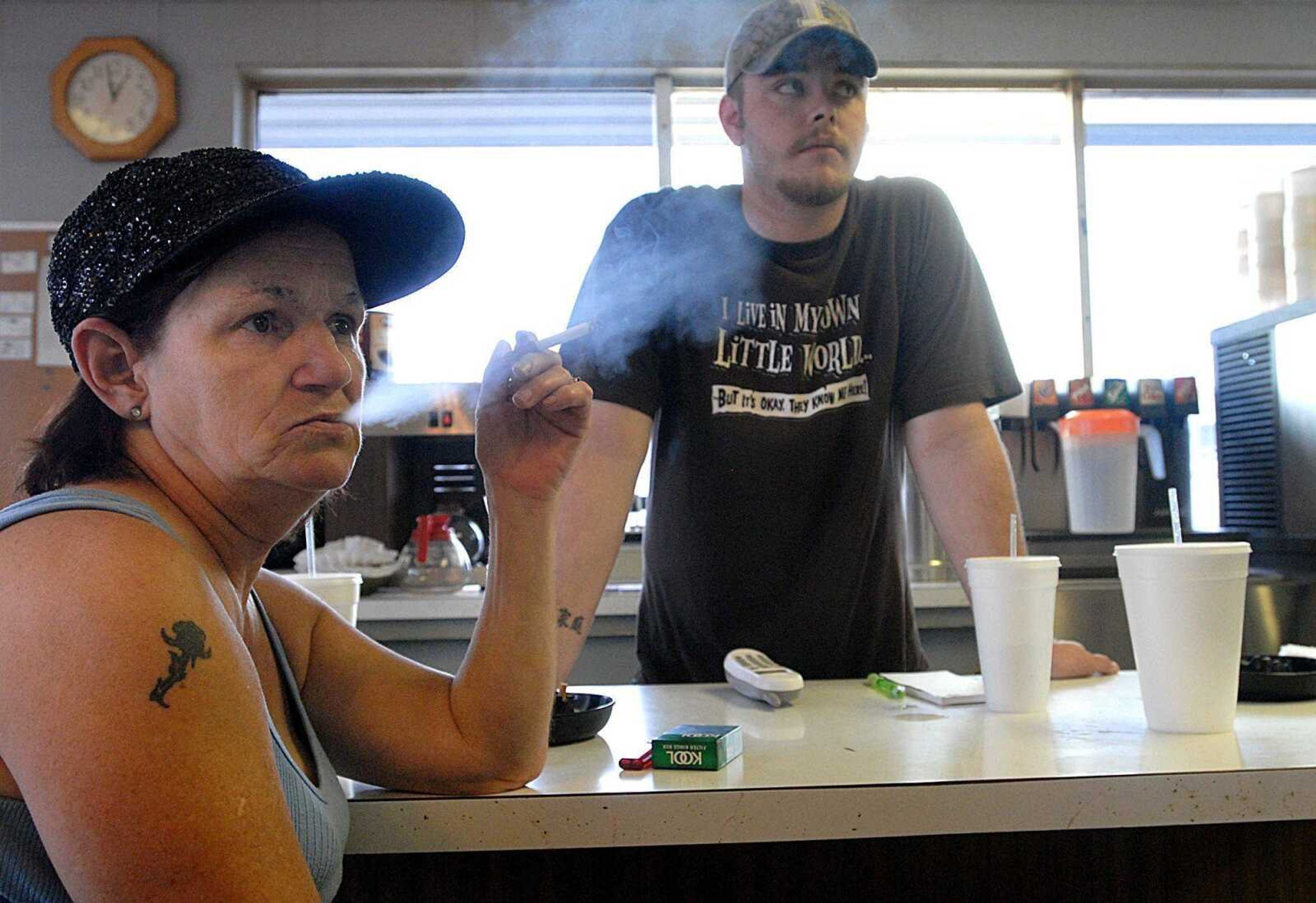More bad news about secondhand smoke
Of course smoking is bad for you -- even when you're not doing the puffing directly. Still more evidence of the damage that secondhand smoke can cause was presented this week in Chicago during the annual meeting of the Radiological Society of North America...
Of course smoking is bad for you -- even when you're not doing the puffing directly.
Still more evidence of the damage that secondhand smoke can cause was presented this week in Chicago during the annual meeting of the Radiological Society of North America.
Researchers from the University of Virginia and the Children's Hospital of Philadelphia reported results of a magnetic resonance imaging study of the lungs of 43 volunteers. Seven of them were current or former smokers and 36 had never smoked, but half of that group had a high level of exposure to secondhand smoke.
Each subject inhaled a special mixture of helium gas just before the imaging. This allowed the radiologists to detect changes deep in the lungs' small airways and sacs, which can break down, become enlarged and develop holes after prolonged exposure to cigarette smoke.
"With this technique, we're able to assess lung structure on a microscopic level," said Dr. Chengbo Wang, an MRI physicist at Children's who led the study.
Measurement of how far helium atoms moved into the lungs in just seconds showed that about half of the smokers and a third of the non-smokers with high exposure to secondhand smoke had at least some lung damage.
Wang said it had long been assumed that prolonged exposure to secondhand smoke can damage the lungs, but other methods of measuring lung changes have not been sensitive enough to detect such damage.
Limiting a carcinogen
Secondhand smoke is classified as a carcinogen by the U.S. Environmental Protection Agency and is linked to many respiratory problems as well as a greater risk of lung cancer. But, as Wang noted, such exposure is still widespread even in public places.
"Legislation to limit public exposure to secondhand smoke is still being considered in many states, so we hope that our work can be used to add momentum to the drive to pass such legislation," the researcher added.
Illinois passed statewide antismoking legislation in July. On Oct. 1, Tennessee went smoke-free. Several restaurants in Southeast Missouri are listed as smoke-free environments, though no legislation, city or otherwise, requires it.
The type of establishment you're in may carry even more weight. Hanging out in a smoke-filled bar may pose an even greater risk to the heart than is the case with most other places where people smoke, according to research.
Alcohol's role
A study published last week shows that not only is tobacco-smoke-filled air bad for heart and blood vessel health, but that drinking alcohol at the same time worsens the situation.
Researchers at the University of Alabama at Birmingham report that mice exposed to smoky air in a lab enclosure and fed a liquid diet containing ethanol, the intoxicant in alcohol, had an almost fivefold increase in artery lesions compared to mice that breathed filtered air and were fed a normal diet with no booze.
The risk for lesions was 2.3 times greater for mice exposed only to smoky air, and 3.5 times greater for those who got the liquid diet only.
The experiments were done over five weeks, and blood-alcohol concentrations in the rodents reached the equivalent of two alcoholic drinks (a 12-ounce beer, an 8-ounce glass of wine or a 4-ounce shot of liquor) consumed by a 150-pound adult per hour.
Cigarette-smoke exposure was comparable to being in a car with a chain smoker with the windows rolled up, the researchers said.
"The study clearly shows that exposure to cigarette smoke when combined with alcohol consumption causes the greatest degree of cardiovascular disease development," said Scott Ballenger, an associate professor of pathology and lead author of the study.
No positive effect
The researchers said the lesions and other signs of heart disease, such as DNA damage and oxidative stress in heart tissue, suggest that the smoke-and-booze combo nullified any potential heart benefit that might be gained from just drinking a moderate amount of alcohol.
"Because moderate alcohol consumption is commonly thought to be cardioprotective, these findings are important for smokers and non-smokers alike in terms of what you should and should not do to protect your health," added Shannon Bailey, an associate professor of environmental health sciences at the University of Alabama and co-author of the study.
The work is published in the current issue of the journal Free Radical Biology and Medicine.
Southeast Missourian features editor Chris Harris contributed to this report.
Connect with the Southeast Missourian Newsroom:
For corrections to this story or other insights for the editor, click here. To submit a letter to the editor, click here. To learn about the Southeast Missourian’s AI Policy, click here.










